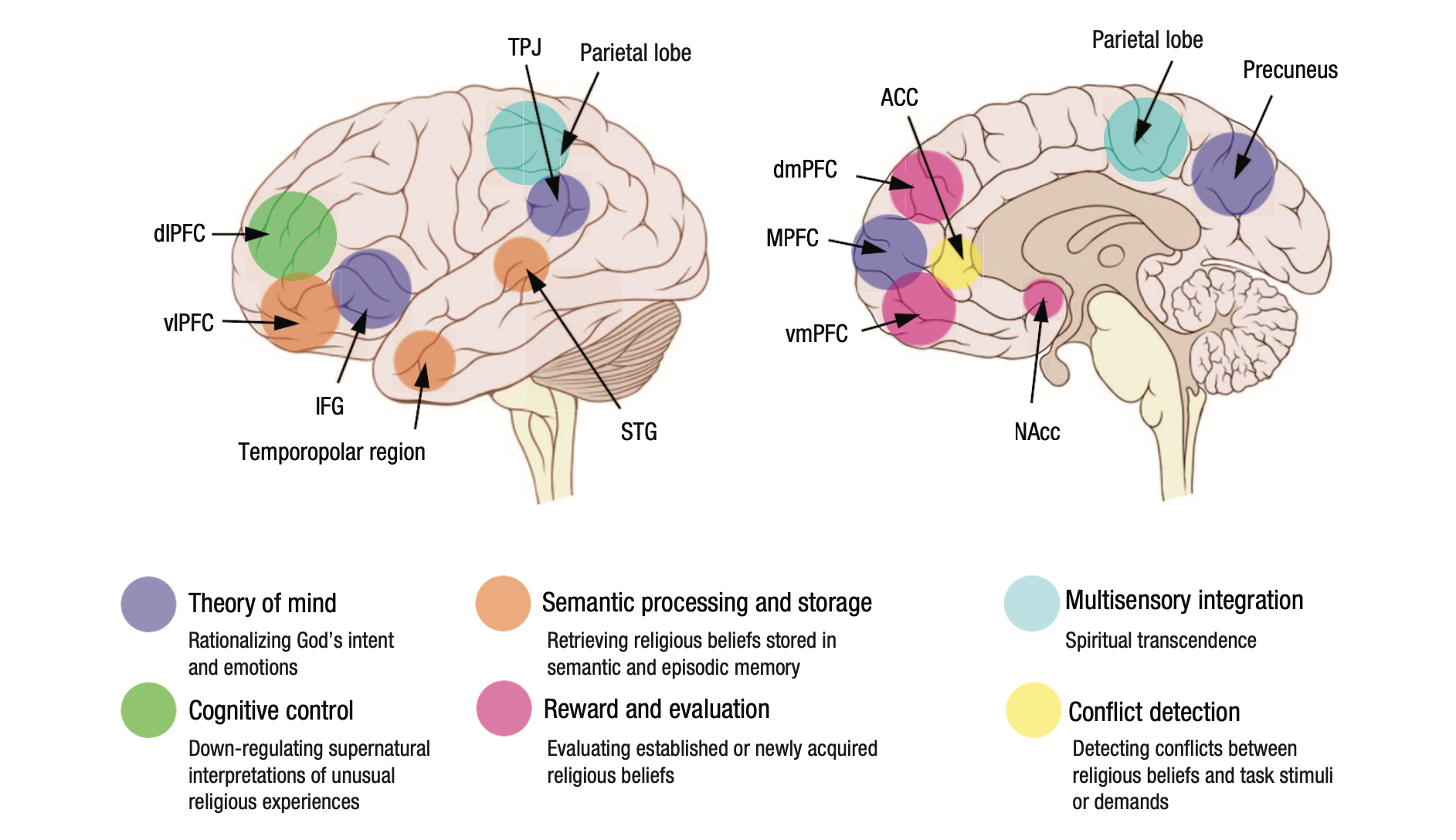About: Project
We are building up and out the emerging field of the cognitive neuroscience of religious cognition (CNRC) by conducting studies on religion and brain topics, building scientific infrastructure in the field, and conducting a grant proposal competition to support other systematic research programs in the field, with a focus on relational theistic cognition.
Relational theistic cognition, or the ways in which people relate to supernatural agents, is an important component of religious cognition. The ambition of this project is to gain a better understanding of the neural mediation of relational theistic belief as well as the brain bases of religious cognition more generally.
Convergent evidence from functional neuroimaging, noninvasive brain stimulation, and lesion-mapping studies have identified a set of brain networks important to religious cognition:
We believe that cognitive neuroscience has reached a stage that it can reliably pinpoint the key neural systems supporting theistic relational cognition and religious cognition more generally. By doing so, this research will not only advance knowledge but also identify fundamental questions that need to be pursued in the future.
Our grant competition program
We invited applications targeting: social relational religious beliefs compared to other forms of belief; the neural implementation and modulation of internal working models of a relationship to God; cognitive representations of a relationship to God; the neural basis of loss, acquisition, and enhancement of access to relational representations of God; and the neural representation of the motivating factors underlying the choice and need for relational religious beliefs and a commitment to God.
To date, scientific descriptions of how people think about God and gods have not fully integrated neurologically based insights and constraints on models of religious belief and cognitions, despite the fact that neuroscience-based approaches to cognitive processes can both generate such constraints and suggest new hypotheses concerning the nature and function of religious cognition. The funding of new research projects in the field will catalyze its further development by bringing in new research teams that can implement research programs capable of testing new hypotheses concerning brain mediation of religious cognition.

